HOW TO KNOW ( Determine ) WHAT TYPE OF Hair You Have? The An Ultimate Guide To Hair Type & Texture - Straight, Wavy, Curly, Kinky Hair : Why Every girl Must Know About Her Hair Type?
How Can I Find my hair type? Here is The ultimate
guide to hair types and textures. Learning about your hair, but it can be the most
important tool for learning and communicating about your hair. Knowing your hair pattern can help you discern which products are good for you to try and which
to steer clear of. Otherwise, you will lose your hair, or damage hair. You are worried with these Questions? Relax! Concern yourself
no more! This article help you!
Consistently moisturize your hair with a leave in moisturizer followed by a sealing oil and set up a deep conditioning routine to frequently hydrate and strengthen your hair. For day–to-day care, look for products with moisture attracting reactants and stay far away from harsh sulfates, mineral oil or any other highly processed chemicals that could harm the hair. A natural, organic routine is best for this hair type and will provide the proper nutrition needed to have growing, healthy hair.
How Do you know my hair type ? What Is Your Hair Type ?
Let's begin by briefly reviewing the chemistry behind
your hair type. From birth you were given your excessive hair texture and
curl pattern. Therefore everyone falls
within the spectrum of Straight, wavy, curly, very curly or kinky hair.
The degree of curl is based on the number of bonds between the keratin within the hair shaft. So, the more disulfide bond links, the more textured your hair will be. On the other hand, the fewer the bonds, the straighter the hair type. Disulfide bonds are the strongest of all the bonds in the hair and can only be permanently altered with chemical treatments.
By using the right products to care for your hair, you can skip the chemicals all together and opt for an organic, natural lifestyle.
The degree of curl is based on the number of bonds between the keratin within the hair shaft. So, the more disulfide bond links, the more textured your hair will be. On the other hand, the fewer the bonds, the straighter the hair type. Disulfide bonds are the strongest of all the bonds in the hair and can only be permanently altered with chemical treatments.
By using the right products to care for your hair, you can skip the chemicals all together and opt for an organic, natural lifestyle.
This typing system offers general guidance. It is
important to understand that each and every individual’s hair type is not
determined by curl pattern only, but also density, volume,length and
consistency. Therefore it is best to use this tool as a starting point for
understanding your hair and a platform to make wise hair product and style
solutions for your everyday needs.
Hair can vary
in shape, length, diameter, texture, and color. The cross section of the hair
may be circular, triangular, irregular, or flattened, influencing the curl of
the hair. There are 4 types of hairs. Straight hair, Wavy, Curly and Kinky Hair.
1. Hair Type - #Straight Hair ( Texture ) :
Straight hair has little to no texture and literally
travels in one straight line from root to tip. Straight hair typically lies
flat and is smooth to the touch. Due to it’s closed cuticle the hair is very
resilient, even with frequent styling, and tends to be oily as the scalps sebum
can travel in one straight shot along the hair shaft.
How To Styling Your Straight Hair : Hair Styling Tips :
Straight hair is resistant to styling but you still have options. For a curly, textured look, try a roller set using for soft, lasting hold.
Wavy hair is not straight and not curly, but
somewhere in the middle. Like straight hair, wavy hair reflects excellent shine
and allots for many different styling options along the spectrum of curly or
straight looks. While this hair type is very resilient and luckily does not
damage easily, it is the most prone to frizz.
How To Styling Your Wavy Hair : Hair Styling Tips :
Wavy hair gals, tend to want enhanced smoothing and curl defining to keep the frizz at bay and show off the glorious texture. Look for products formulated to tame frizz and enhance the texture without weighting the hair down. Additionally, after styling, keep tools and hands out of the hair to prevent disruption of the styling effects. Use a diffuser after applying your product for more volume. Finally, remember to keep you hair clean and hydrated for most manageable texture.
3. Hair Type - #Curly Hair ( Texture ) :
Curly hair follows a definitive pattern displayed as
an “s” or “z”.Allow this pattern to have fun with various styling options. One
challenge of this hair type is dryness as the scalp’s sebum has a rocky road to
travel to naturally hydrate the strands. Equally challenging is the presence of
frizz. For the best hair care, use
organic based products that will not compromise the
integrity of the strands and fortify dry tendrils from the inside out.
How To Styling Your Curly Hair : Hair Styling Tips :
Styling curly hair starts
with the cleansing and conditioning process. Keep your hair and scalp regulated
by cleansing on a regular basis with a healthy, non-stripping, moisturizing
cleanser followed by a hydrating/detangling conditioner. Style your hair by smoothing
your products along the hair shaft to control frizz and define the curls and
don’t be afraid to try new techniques like roller sets, down do’s and up do’s.
Very
Curly Hair ( Texture ) :
Very Curly Hair is the curliest of curlies. While it holds all the attributes of Curly hair, it is even more prone to tangles, breakage, dryness and frizz. Some types carry the “s” pattern, the “z” pattern, or even a texture in between.
Very Curly Hair is the curliest of curlies. While it holds all the attributes of Curly hair, it is even more prone to tangles, breakage, dryness and frizz. Some types carry the “s” pattern, the “z” pattern, or even a texture in between.
How To Styling Your Very Curly Hair : Hair Styling Tips :
The biggest benefit to having very curly hair is its immeasurable volume. For full bodied, halo curls; apply your styler after cleansing and conditioning with a moisturizing shampoo and conditioner. Use a light product to define the curls without overly controlling your texture. If you like a more subdued curl, use a heavy curl cream and shingle throughout your hair to clump and elongate your curls. On day two, apply a daily moisturizer to refresh your curls and instead of scrunching the product into your hair, simply smooth the product along the hair shaft to skip the frizz.
Kinky hair appears to be the strongest of hair types
while it is actually the most fragile and delicate of all hair types. The
strands could follow a ziggy pattern or show no pattern at all, leaving a
“puffy” appearance. This hair type also experiences extreme dryness and requires
consistent hydrating and protecting. Be sure to sleep in a silk or satin bonnet
nightly to prevent additional tangles, knots and breakage.
How To Styling Your Kinky Hair : Hair Styling Tips :
This hair type has the longest
list of possible styles that can be achieved. Kinky hair can wear their hair
straight or in a sleek up do, twist out, braid out, Bantu knot out, Afro or a
cornrow style. Whichever look you go for, be sure to use healthy curly hair products
like CURLS to protect your strands against the elements.
THE MAIN FUNCTIONS OF HAIR : INTERESTING FACTS ABOUT HAIR :
Its main purpose is to
regulate body temperature to keep the body warm by insulating it. It is also
used to decrease friction, to protect against sunlight, and to act as a sense
organ. In many mammals, hair can be very dense, and it is then referred to as
fur. Hair works as a temperature regulator in association with muscles in the skin.
If the outside temperature is cold, these muscles pull the hair strands upright, creating pockets that trap air. This trapped air provides a warm, insulating layer next to the skin. If the temperature outside is warm, the muscles relax and the hair becomes flattened against the body, releasing the trapped air.
In humans, body hair is mostly reduced; it does not play as large a role in temperature regulation as it does in other animals. When humans are born, they have about 5 million hair follicles, only 2 percent of which are on the head. This is the largest number of hair follicles a human will ever have. As a human ages, the density of hair decreases.
Thank you for reading this article, If you think this information useful for others, Please share it on your social media accounts. Like facebook, twitter, Whatsapp, Linkdin etc., This will give me encouragement to write more these type of articles. Write your opinions in comment section. I am very happy to communicate with you.
By : Umakrishnaveni Karnati
If the outside temperature is cold, these muscles pull the hair strands upright, creating pockets that trap air. This trapped air provides a warm, insulating layer next to the skin. If the temperature outside is warm, the muscles relax and the hair becomes flattened against the body, releasing the trapped air.
In humans, body hair is mostly reduced; it does not play as large a role in temperature regulation as it does in other animals. When humans are born, they have about 5 million hair follicles, only 2 percent of which are on the head. This is the largest number of hair follicles a human will ever have. As a human ages, the density of hair decreases.
Thank you for reading this article, If you think this information useful for others, Please share it on your social media accounts. Like facebook, twitter, Whatsapp, Linkdin etc., This will give me encouragement to write more these type of articles. Write your opinions in comment section. I am very happy to communicate with you.
By : Umakrishnaveni Karnati










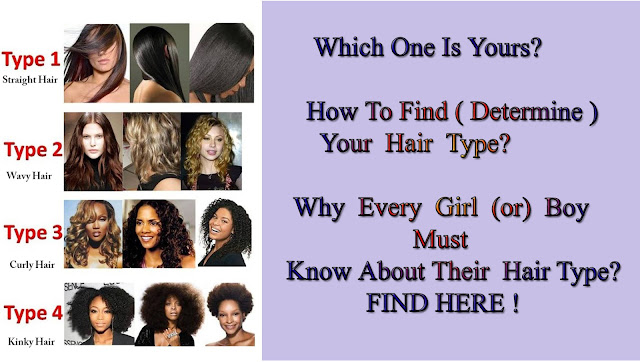
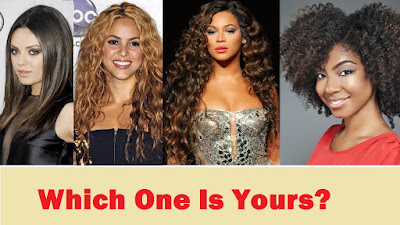
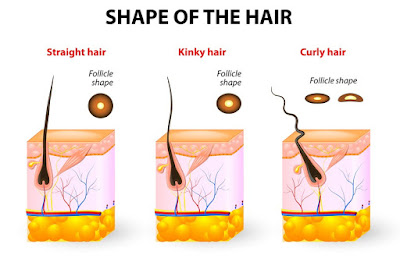
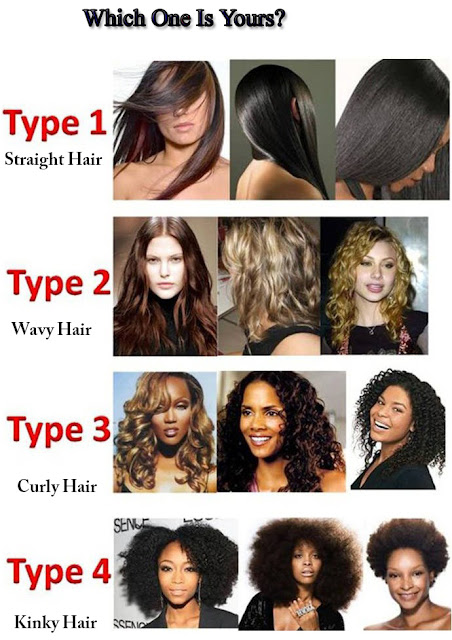
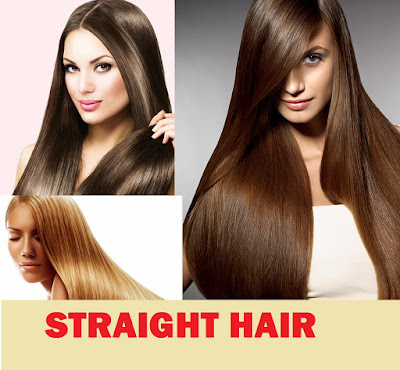


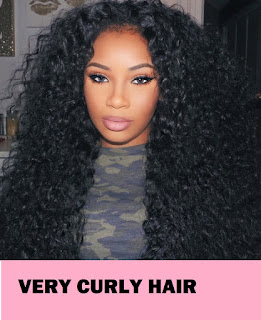
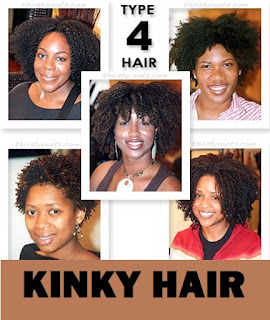
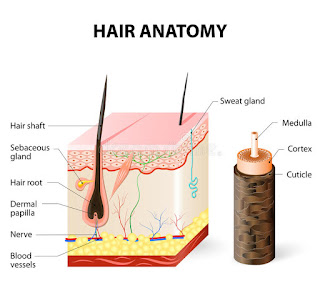





Absolutely amazing, thanks
ReplyDelete